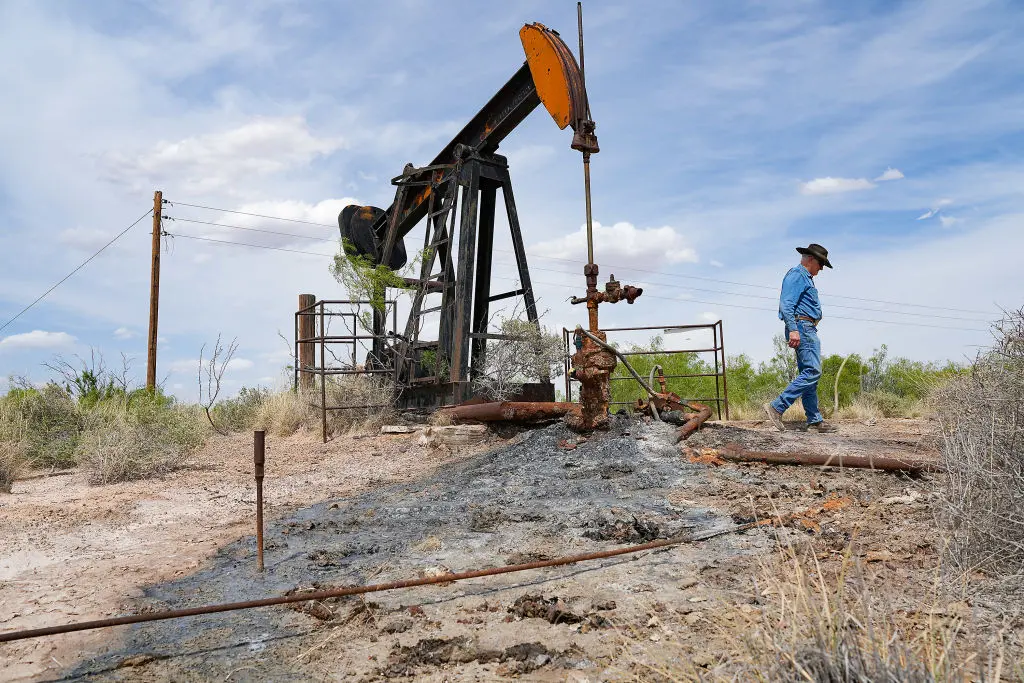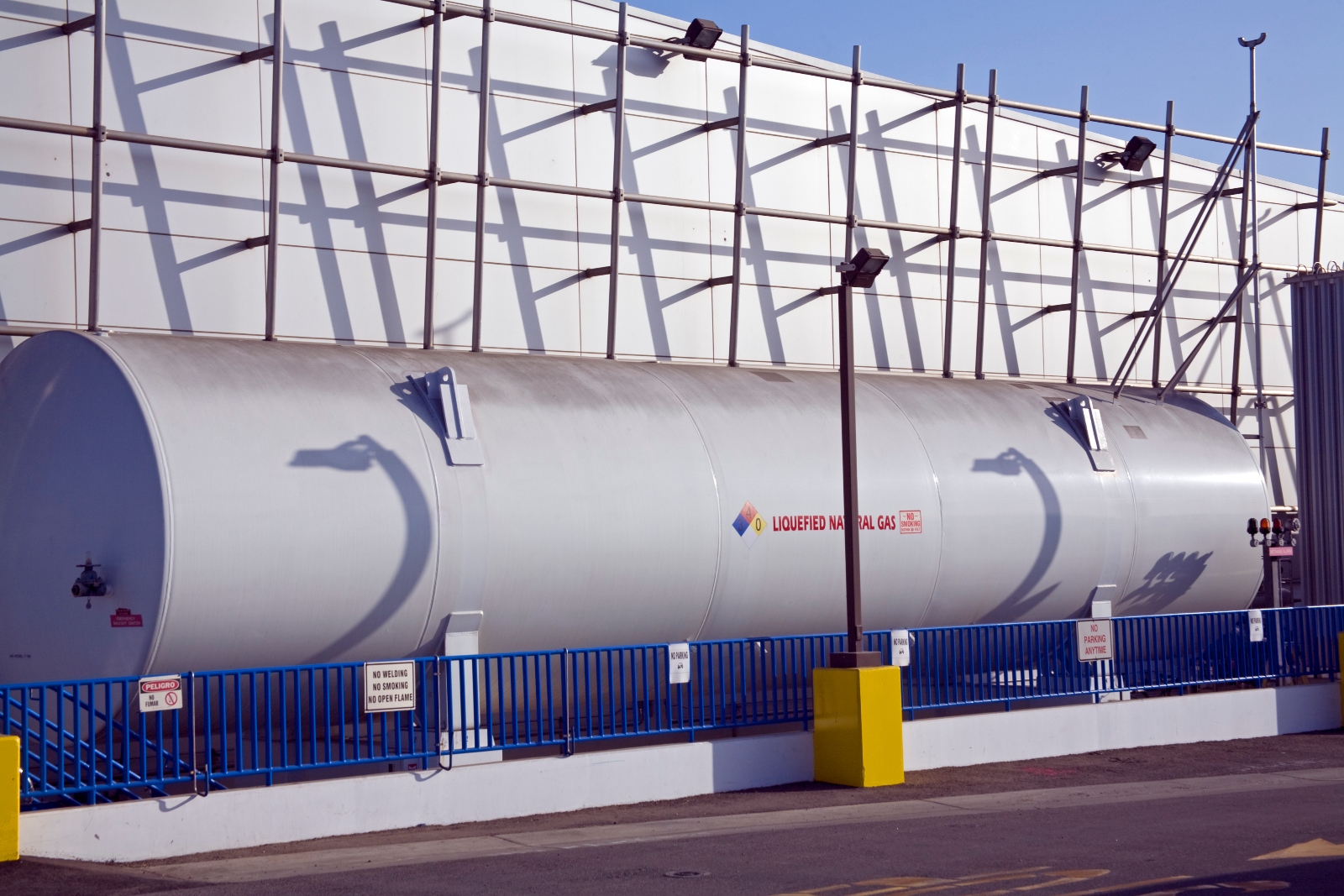As President-elect Donald Trump takes direct aim at federal climate policy, states and their attorneys general are preparing to fight back. In California, the governor has asked legislators for $25 million to fight off any effort by Trump to upend the state’s climate-friendly initiatives. In Washington, voters doubled down on the state’s landmark climate policy, and Jay Inslee — the outgoing governor — said his successor is set to work hard to protect the state from a fossil fuel-friendly president.
But in Pennsylvania, one of the largest energy producers in the country where voters narrowly voted for Trump, it’s unclear just how stiff that resistance will be if the incoming president follows through with his vows to shred President Biden’s environmental agenda and cancel funds for clean energy projects.
One clue might be found in the person voters elected as the state’s new attorney general — Dave Sunday, a Republican who was largely silent on environmental issues during the run-up to the election but drew on a large infusion of money tied to the fossil fuel industry to propel his campaign.
And while Democratic Governor Josh Shapiro took on the oil and gas industry and then-president Trump while he was attorney general, one of Sunday’s first moves was to name a noted oil and gas booster to his transition team.
State campaign finance records and Internal Revenue Service filings show that Sunday accepted direct contributions from a tax-exempt association tied to the fossil fuel industry called the Republican Attorneys General Association, or RAGA.
Some $550,000 in direct contributions flowed to Sunday through the Keystone Prosperity PAC, a political action committee created by RAGA. In 2024, RAGA received at least $1.6 million from fossil fuel and petrochemical companies, utilities, and trade groups, including Exxon Mobil, Chevron Phillips Chemical, the National Mining Association, the American Gas Association, and the American Petroleum Institute.
The Republican Attorneys General Association also received contributions from smaller fossil fuel interests with Pennsylvania-specific operations. Diversified Oil and Gas Co., which owns a slew of low-producing oil and gas wells, many in Pennsylvania, and which has come under fire for its financial reporting mechanisms, donated $15,000 to RAGA in June. Equitrans, which recently merged with Pittsburgh-based natural gas company EQT, contributed $50,000 in April. RAGA then donated funds to Sunday in two payments: $400,000 in July and $150,000 in September. These marked the two largest donations to Sunday’s campaign in 2024, according to data through September 24.
“RAGA’s early engagement in Pennsylvania paid dividends and proved to be one of our wisest investments to date,” Republican Attorneys General Association Executive Director Peter Bisbee said in a statement following Sunday’s victory. The organization, he said, “made a record investment in Pennsylvania” last year.
Sunday also received a handful of direct contributions from oil and gas-related entities, including $10,000 from the Koch Industries PAC; $1,500 from the Pennsylvania Grade Crude Oil Coalition; $1,000 from midstream oil and gas firm Energy Transfer; and $1,000 from the Pennsylvania Coal PAC.
“While we Pennsylvanians go about our lives, we hope our government is working to protect us from drinking and breathing toxic chemicals,” said Michael Bagdes-Canning, a member of Pennsylvania Action on Climate, a grassroots coalition of climate and anti-corruption advocates. “But in Harrisburg [the state capital], the fossil fuel industries are busy, behind the scenes and undercover, converting their enormous wealth into the political power they need to protect and enlarge that wealth.”
Capital & Main reached out to Sunday’s campaign and did not hear back by publication time.
Among those Sunday tapped to help in his transition as the state’s first Republican attorney general in 12 years is former Governor Tom Corbett, who became known for his pro-drilling stance during the state’s fracking boom. Prior to his tenure as governor, Corbett served as attorney general and, while in office, accepted gifts tied to the oil and gas industry.
From California to Pennsylvania, the role of a state’s top law enforcement official could be critical for states that intend to fight Trump’s promises to strip away regulations and initiatives designed to speed the transition away from fossil fuels.
“When people who care about the environment and climate lose the presidency to someone who obviously is about as radically against action on environment and climate as you could possibly be, then we turn to states,” said Joseph Romm, senior research fellow at the University of Pennsylvania Center for Science, Sustainability, and the Media.
As some line up to litigate against Trump’s policies, as well as corporations that violate laws in their states, the Republican attorneys general that are active in RAGA are likely to take a different tack.
The Republican Attorneys General Association was established in 1999 with the aim of electing Republicans to attorney general seats across the nation and “defending the rule of law,” its website states. The organization currently has 28 member states, though Pennsylvania is not yet one of them. Shapiro was attorney general until 2022, and Democrat Michelle Henry assumed office in an acting role in January 2023. She opted not to run for office in 2024, which opened the gates for a crowded primary.
RAGA has spearheaded legal challenges to major environmental rules over the course of Biden’s term. It also led a robocall campaign four years ago urging attendance at the January 6 rally in Washington, D.C., which devolved into the attack on the Capitol. The organization receives contributions from industry and companies of all sizes, many that earn invitations to national conferences where they can get face time with attorneys general. Access to the conferences is tiered by the amount a donor gives. In a 2018 list of the perks, $15,000 earned a company two passes, while $125,000 earned five passes, invitations to dinners and club events, and the opportunity to sit on panels, among other rewards.
“What you have is state attorneys general who aren’t actually ever even assessing what the ordinary people in the state want,” said Lisa Graves, founder of True North Research, a political watchdog research firm. “Instead [they] are rubbing elbows, hanging out, going on these little mini-vacations with these industry lobbyists who get exclusive opportunities to bend their ear.”
The Republican Attorneys General Association does not file records of its contributions to the Federal Election Commission, but to the IRS. These donations can then be given to individual candidates in contentious attorneys general races across states, thus obscuring their origins. There’s little way for an outsider to know if one company intended for its RAGA donation to go to a particular attorney general candidate, for instance.
“I think they’re trying to obfuscate their involvement,” Romm said of companies that donate money through RAGA.
In 2017, The Wall Street Journal reported that, when giving to the counterpart Democratic and Republican governors’ associations, which function similarly to RAGA, donors have the ability to informally earmark their donations for a specific candidate.
“RAGA is one tentacle of the effort by right-wing billionaires and the fossil fuel industry to capture our courts and government to the benefit of big corporate interests,” U.S. Senator Sheldon Whitehouse, a Democrat from Rhode Island, told The Guardian in August.
Keystone Prosperity PAC’s donations to Sunday represented around 26 percent of his overall direct contributions and 83 percent of his direct contributions from political action committees. Spotlight Pennsylvania reported in October that Keystone Prosperity PAC also spent $5.4 million running ads on Sunday’s behalf, calling his opponent, Eugene DePasquale, “out of touch” and chiding him for his stance on immigration and police reform. The PAC’s spending levels raised alarm bells within the DePasquale campaign that Sunday hadn’t been forthcoming about the sources of the donations.
DePasquale, for his part, received around $1.6 million from the Democratic Attorneys General Association, which received contributions from some of the same fossil fuel entities that donated to RAGA, albeit in smaller volumes. Where the American Fuel and Petrochemical Manufacturers gave $92,500 to RAGA, for instance, it gave $25,000 to DAGA. Where the American Gas Association gave $40,000 to RAGA, to DAGA it gave just $15,000.
Sunday’s campaign platform offered no indication of a specific tack he will take on climate. The Harrisburg native campaigned primarily on a “tough on crime” platform to reduce prison recidivism and address the state’s opioid crisis through a philosophy of “accountability and redemption.”
DePasquale once served as deputy secretary of the Department of Environmental Protection and, in 2019, authored a report that found that climate change had cost Pennsylvania hundreds of millions of dollars per year. That made the attorney general’s race in Pennsylvania one of the most important for climate in the nation, according to E&E News.
So, where do state environmental groups go from here?
“We’re going to sort of remain positive and optimistic, until we have reason not to,” said Jen Quinn, Sierra Club Pennsylvania’s legislative and political director, of Sunday’s election. Even so, she said having an environmental champion at the helm of the attorney general’s office might have served as a deterrent to polluters — it’s yet unclear whether Sunday will fill that role.
“Just having someone in there that is going to be strong on certain issues, I think, is helpful,” Quinn said. “If we’re seeing a lot of special interest money going to support him, then you just have to wonder, what are the long-term implications of that?”
Copyright 2024 Capital & Main








